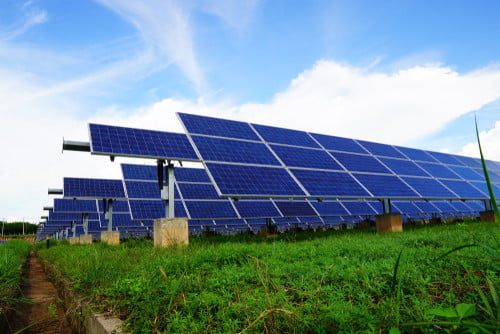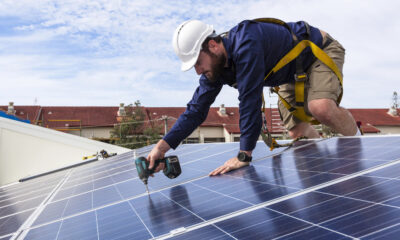Demand for solar energy is growing rapidly in the United States and abroad. Solar panel purchases grew 30% between 2020 and 2021. However, many people don’t know how to get the most out of their solar energy.
Last summer, we published a post on getting the most out of solar energy for your home. There are a lot of things that you can do, but one of the most important is finding the right solar panel.
If you’re considering making the switch to solar energy is a big decision, but it’s one that will pay off in the long run. Doing the necessary research and calculating the costs of going solar is an important first step. There are a lot of factors to consider, but don’t worry – we’re here to help!
Let’s discuss some things you need to think about when choosing your new solar panel. So read on for advice on how to find the perfect fit for your needs!
7 Key Factors for Choosing the Best Solar Panel for Your Home
You don’t want to be careless when purchasing solar panels for your home. Here are seven important factors to take into consideration.
1. Price
Solar panels are a big investment, so it’s important to choose them wisely. When evaluating solar panels, keep in mind that the price is not the only important factor.
The most expensive panel might not be the best value, and the cheapest panel might not be the best either. Instead of focusing on price, look for a high-quality system that will be efficient and last a long time.
Solar panels have a lifespan of more than 30 years, so it’s important to find a system that will provide optimal performance for the long term.
Do your research to find the best solar panel for your needs, and don’t let cost be the only deciding factor.
Tip: Look for information on solar rebates in VIC and take advantage of government subsidies for solar system installation.
2. Type of Solar Panel
Solar panels come in a variety of shapes and sizes, each with its own advantages and disadvantages.
Monocrystalline silicon panels are the most efficient type of panel, but they also have a higher price tag.
Polycrystalline silicon panels are less efficient, but they are more affordable.
Thin-film or Amorphous silicon panels are the least efficient type of panel, but they use less silicon and are thinner, making them easier to install.
When it comes to efficiency, there is no one-size-fits-all solution. The best type of panel for your home will depend on your budget and your installation needs.
3. Temperature Tolerance
This is simply the extent to which a panel can operate correctly even when exposed to heat.
Generally speaking, most solar panels have a temperature coefficient of between -0.2% and -0.5% per degree Celsius (°C).
However, some panels are able to withstand higher temperatures without experiencing significant reductions in performance.
To find the best solar panels for your needs, look for products with a high degree of thermo-tolerance, as they will be better equipped to maintain optimal operating efficiency even in warmer climates.
Ultimately, this will allow you to maximize the output of your system and enjoy greater cost savings over time.
4. Quality
When it comes to solar energy, choosing high-quality panels is essential for ensuring optimal output and performance.
A solid 25-year warranty is typically a good indicator of the manufacturer’s confidence in their products.
However, it may also be a sign that the company is unwilling to take responsibility for any issues or problems that arise down the line.
Therefore, while a low price may initially seem like an attractive option, it may end up costing you more in the long run if the quality is sacrificed in favor of affordability.
To maximize the lifespan of your solar panels and ensure maximum efficiency, it is important to stay on top of regular maintenance and upkeep.
This generally involves cleaning panels on a regular basis, replacing damaged parts as needed, and monitoring performance indicators such as shade or snow coverage regularly.
Overall, with proper care and attention, your solar panels can be reliable and long-lasting energy sources for decades to come.
5. Efficiency
When it comes to choosing a solar panel, there are several factors that must be considered in order to determine the panel’s overall efficiency.
First, the amount of light the panel receives will determine how much electricity it generates and thus how effective it is at meeting your energy needs.
Lastly, you’ll need to consider your specific requirements as a consumer.
Ask yourself.
- Do you need a large or small panel?
- Are you willing to pay more for high efficiency, even if it means spending more upfront?
Ultimately, it is important to balance these different considerations when selecting a solar panel so that you can be sure to find the one that best meets your needs.
After all, buying an overly large or inefficient panel may lead to unnecessary expense and frustration down the road.
6. Durability
There are many reasons why it is important to look for durability when choosing the best solar panel for your home.
- A durable solar panel will last much longer than a less durable one, meaning that you won’t have to worry about replacing it as often. Don’t forget to properly secure each panel correctly. Fixing Solar panels is easy with high quality panels & fixings.
- It is more likely to withstand harsh weather conditions or impacts from falling objects, such as tree branches. This not only helps to ensure that your solar panel will continue working efficiently but also protects it from potential damage that could render it completely useless.
- By opting for a durable solar panel, you can reduce your overall carbon footprint, since you won’t need to replace the panel as often and thus won’t have to purchase and use additional materials during this process.
In short, choosing durability over other factors when selecting the best solar panel is an excellent way to reap the many benefits of this renewable source of energy while also helping to protect our environment in the long run.
7. Size
When shopping for solar panels, it’s important to pay attention to the size of the panel.
Larger panels will produce more electricity, which can be a big advantage if you have a high energy use. They also tend to be more durable and easier to install.
However, larger panels can also be more expensive, so it’s important to strike a balance between size and cost when choosing the best solar panel for your home.
Purchase the Right Solar Panels for Your Home
Investing in solar panels is a smart choice for any homeowner looking to reduce their energy bills and take better control over their energy consumption.
So don’t let your fears about high costs stop you from taking advantage of the many benefits of solar power!
By considering the 7 key factors mentioned above, you can choose the best solar panel for your home.





























